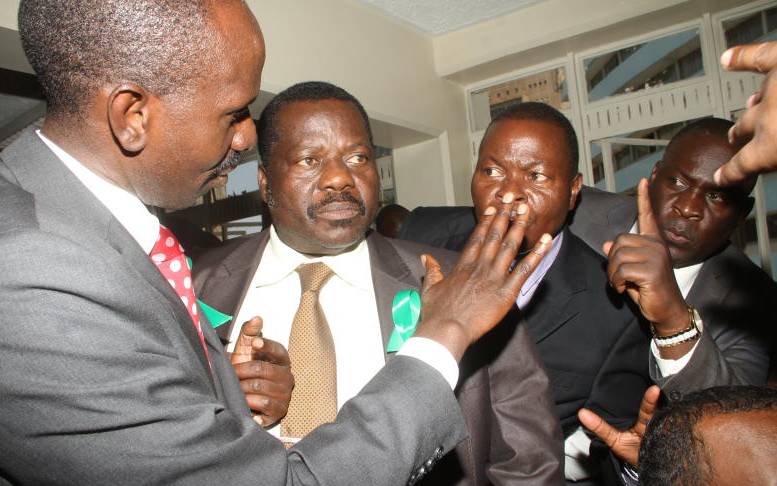×
The Standard e-Paper
Stay Informed, Even Offline

Kenya National Union Teachers (KNUT) Secretary general Wilson Sossion (left) and his Chairman Mudzo Nzili (second left) argues with KUPPET counterparts Akelo Misori (second right) KUPPET Omboko Milemba respectively after the Employment and Labour Relations Court ordered the suspension of the ongoing Teachers strike for 90 days on September 25, 2015. [File, Standard]
As debate rages on whether the powers of the teachers’ employer should be checked, the reasons why this might be necessary must not get lost amid the acrimony.